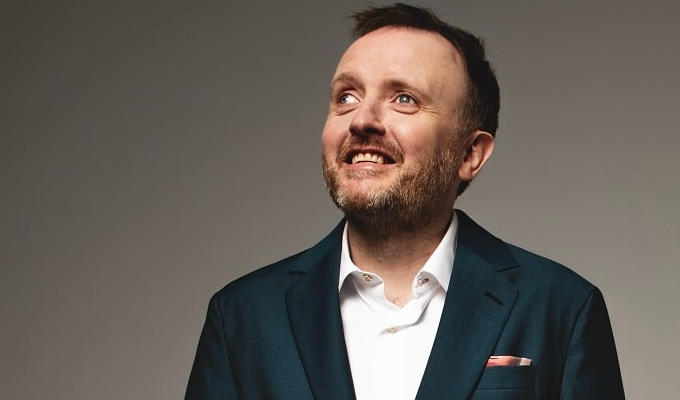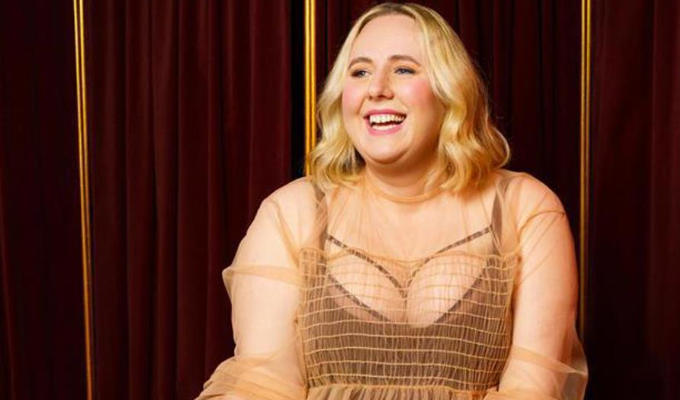My 13 favourite rules of comedy
By Jonathan Lynn
Last September Yes Prime Minister, the new play that I wrote with my old writing partner Tony Jay, opened at the Gielgud Theatre in London. The play was published by Faber and Faber, and our editor Dinah Wood asked me to give the staff a lunchtime talk about comedy. It went so well that Dinah asked me to write a book about the rules of comedy. I instantly dismissed the idea, saying that there weren’t any and, in any case, it would be an impossible task.
Two months later I was teaching at the American Film Institute and as I listened to the words coming out of my mouth I thought: this sounds like rules of comedy. I emailed Dinah: ‘I can’t write a book about the rules of comedy but I could try to write one about my rules of comedy’. Comedy Rules has just been published. It’s not a How To book for professionals, it’s an attempt to explain to the general public how it is done.
Here are 13 of my favourite rules from the book:
1. In all comedy the driving force of the story must be a hideous dilemma for one or more of the characters.
In a film I directed, My Cousin Vinny, two young men are arrested and charged with a murder that the audience knows they did not commit. Vinny, a cousin of one of them from New York, is a recently qualified trial lawyer who passed his bar finals at his sixth attempt. He has never taken part in a trial. He arrives in Alabama, a death penalty state, and offers to defend them. Should they say yes? Should he take on the job? This is a truly hideous dilemma, for them, and for him, and is thus a perfect subject for comedy.
2. The audience won’t care if the characters don’t.
A good comedy is not about silly people doing silly things. Comedy has to be about something important - important to the characters, and important values to the society in which it is played. It is about serious characters doing desperate things because they have left themselves no choice.
3. If you put it up there on the stage or the screen and they laugh, it’s funny. If they don’t laugh, it’s not funny.
This is an objective test. You can’t fake funniness.
This rule presupposes (a) a full house and (b) a cross section of the target audience. To achieve that you probably need at least 200 people. If I go to a play or film and everyone in the audience laughs but me, I don’t say it’s not funny, I say that I didn’t find it funny.
4. The audience laughs because it recognises something truthful.
Tom Stoppard, I read, called laughter the sound of comprehension. I have always thought of it as the sound of recognition. We laugh when we see something on the stage or screen that rings true: there, but for the grace of God, go I!
With their laughter, the audience is agreeing to accept the truth you are telling.
5. If we laugh because we recognise something about ourselves, we are owning up.
Frequently when we laugh we are admitting I’ve said that, I’ve done that, I’ve thought that or I wish I’d said that or done that.
Or, more aggressively: You have done that, or said that, and that’s why I’m laughing at you. You might be subconsciously adding: I dislike you, I despise you, I am contemptuous of your behaviour.
You will laugh more if you are surrounded by other people who are laughing because they share your view. They’re owning up too.
6. There is no such thing as bad taste.
Something is funny, or it’s not funny. When comedy is funny, it tells a truth that might otherwise not be told. ‘Bad taste’ is simply a way of describing when a joke has crossed the line into ‘not funny’.
7. Comedy is an outlet for rage, a way to say or do things that ‘shouldn’t’ be said or done.
Many people to whom rage is forbidden, and who are powerless to express it for personal or cultural reasons, or both, turn it against themselves. Shame is the result. This shame, in turn, causes profound sadness. In a psychological nutshell, this is why some people who are aggressive, prone to depression, melancholy and despair become comedians: they are trying to express their rage in a way that doesn’t make them feel guilty.
Thus anger can be healthier than sadness. But it runs the big risk of upsetting people. This is why it is usually transmuted into comedy. It’s safer that way.
For most people who do it professionally, comedy is an outlet for anger but not, unfortunately, a cure. They are usually unaware of it: the rage is displaced into mother-in-law jokes, spouse jokes (“Take my wife. Please.”) and jokes against all institutions of society.
8. Comedy attacks the institutions of society.
Comedy makes fun of marriage, in-laws, the family, the courts, the police, the military, the church, academia, the prison system, politicians, and everyone in public life. If art is criticism of life, comedy is criticism by ridicule.
9. Comedy is necessarily cruel.
But here’s the paradox: comedians and writers of comedy enjoy being cruel but they also want to be liked. They want praise and approval. And, in purely practical terms, it’s no good being the funniest person in the world if there is no audience to entertain. If a tree falls in a forest and there’s no one there to see it, did it really fall?
Comedian Henny Youngman’s version of this famous philosophical conundrum is: if a husband is alone in a forest, is he still wrong? (An angry joke if ever there was one).
Here are some more of his one liners: 'Why do men die before their wives? They want to.' 'Why does divorce cost so much? It's worth it.'
Women also make angry jokes. About fake orgasms, Joan Rivers said: 'It's common courtesy. He's doing most of the work, you've got to encourage him.'
Comedy writers know, either instinctively or consciously, that they have to keep their rage and their despair under wraps. It must come out in their work as funny, not angry.
10. The oldest source of comedy is The Ten Commandments
This is because comedy is about the breaking of taboos. It involves saying things that are not normally said, or admitted. The Ten Commandments are the root of our society’s moral and ethical rules [1]. Here they are, from the Authorised King James version, edited for brevity. Read them and think how many comedies are based on breaking these rules. Virtually all, I would suggest.
I am the Lord thy God
Thou shalt have no other gods before me…thou shalt not bow down thyself to them, nor serve them for I the LORD thy God am a jealous God, visiting the iniquity of the fathers upon the children unto the third and fourth generation of them that hate me
Thou shalt not take the name of the LORD thy God in vain
Remember the sabbath day, to keep it holy
Honour thy father and thy mother
Thou shalt not kill
Thou shalt not commit adultery
Thou shalt not steal
Thou shalt not bear false witness against thy neighbour
Thou shalt not covet thy neighbour's house, thou shalt not covet thy neighboru's wife, nor his manservant, nor his maidservant, nor his ox, nor his ass, nor any thing that is thy neighbour's.
11. The Seven Deadly Sins are present in all comedy.
For non-Catholic readers, here they are again: Lust, Gluttony, Greed, Sloth, Anger, Envy and Pride. I keep a framed copy of the Seven Deadly Sins on my desk.
A couple of them may need further explanation: Gluttony is either a sin of over-indulgence, or of status, or withholding from the needy.
Greed, also known as Avarice and Covetousness, is about the pursuit of wealth and power. (The church knows a thing or two about that). It would include treachery, disloyalty or deliberate betrayal, all for personal gain.
Vanity and pomposity, essential qualities for characters in comedy, are presumably sub-sections of the sin of Pride.
There are some other useful comic sins that are not specifically mentioned among the Seven Deadlies: hypocrisy, cowardice and miserliness. Without these three, many comedians would have had no act: I’m thinking specifically of Jack Benny, Bob Hope and Woody Allen, each of whom based his persona on these three universally understood failings.
Jack Benny’s defining joke was the scene when he was held up by a mugger at gunpoint. 'Your money or your life', demanded the mugger.
Benny stared at him and did not speak.
The mugger started to lose patience: 'I said, your money or your life!'
'I’m thinking. I’m thinking!' said Benny.
12. Ars Et Celare Artem. (The art is to conceal the art).
This is the motto of the Footlights Dramatic Club, at Cambridge. Comedy is best when it looks effortless and easy. The problem is that if it looks easy, people tend to think that it is easy, so comedies are seldom treated with the respect accorded to a so-called ‘serious’ film or play. Comedy is always needed and wanted; although comedies almost never win an Oscar for Best Picture, paradoxically everyone agrees that Oscar shows are best when hosted by a funny comedian. Unfortunately:
13. If you conceal the art, you can’t expect people to see the artistry.
It’s a Catch 22.
- Extracted from Comedy Rules: From the Cambridge Footlights to Yes, Prime Minister by Jonathan Lynn, published by Faber & Faber at £14.99. Click here to buy from Amazon for £7.94.
Published: 6 Sep 2011






